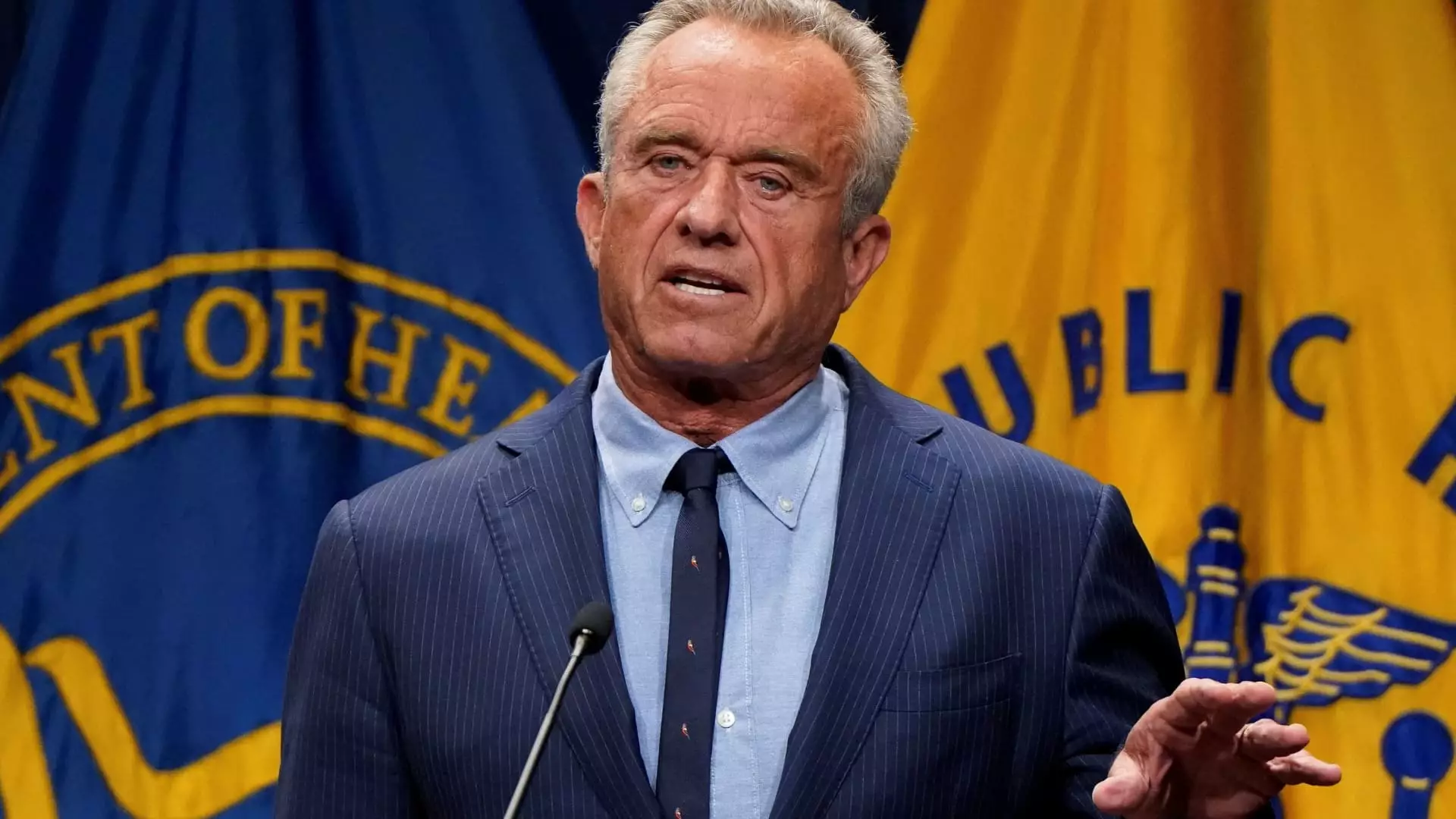In a move that has stirred controversy across the public health landscape, Health and Human Services Secretary Robert F. Kennedy Jr. has recently appointed eight new members to the Advisory Committee on Immunization Practices (ACIP) after dismissing the entire previous cohort. This shake-up raises significant concerns about the direction of vaccine policy in the United States, and it casts a long shadow over the foundational principles of evidence-based medicine. The fact that some of these newly appointed members are notorious critics of vaccines is not just alarming; it’s a clear indication of a broader ideological battle brewing within the corridors of power.
Kennedy’s choices have elicited immediate criticism from public health experts. Renowned figures like Dr. Paul Offit have voiced fears that the quality of guidance emanating from ACIP will decline substantially. With the committee set to influence vaccination strategies that impact millions, the implications of this shift cannot be understated. Rather than steering the nation towards greater public health safety, it seems poised to undermine decades of progress in vaccination efforts.
Redistributing Scientific Credibility Amidst Controversy
The new appointments include individuals with a history of skepticism towards vaccines, which is particularly troubling when speaking of a panel that should champion top-tier scientific evidence. Dr. Robert Malone, a central figure in the anti-vaccine movement, is among the new picks. Despite claiming a role in developing mRNA technology, his assertions often veer into territory lacking credible scientific backing. His suggestion earlier this year that recent child fatalities linked to measles might stem from medical errors rather than the virus itself raises significant ethical questions about the motives behind his appointment.
While Kennedy lauds his appointees as “highly credentialed scientists,” the emphasis on credentials alone is disingenuous if those credentials are not accompanied by a commitment to accurate science. Lawrence Gostin, a public health law professor, aptly labeled the situation as a “national tragedy.” Such cavalier dismissal of crucial health norms appears less about scientific progress and more about political maneuvering and populist agendas.
Expertise vs. Ideology: A Losing Battle for Credibility
The previous members of ACIP brought a wealth of expertise to the table, carefully crafted through years of collaboration and research. Under their guidance, vaccination rates improved, and public confidence was generally higher. Kennedy’s new appointments, however, signify an alarming shift. Experts fear that with this new composition, critical discussions surrounding vaccine safety and efficacy may be tainted by an ideological slant that undermines public trust. As Dr. Offit aptly pointed out, the public should not expect sound advice from a committee populated by “anti-vaccine activists.”
The rapid evolution of vaccine hesitancy, fueled by misinformation, signals a pressing need for robust evidence and solid scientific inquiry. In a time when public health is being continuously challenged, the integrity of advisory panels like ACIP becomes ever more essential. Replacing seasoned advisors with members whose beliefs may compromise well-established scientific knowledge is a gamble with dangerous stakes.
The Role of Misinformation in Vaccine Discourse
The broader implications of Kennedy’s appointments extend beyond immediate policy changes; they signify a worrying trend of legitimizing misinformation in health discourse. For instance, Vicky Pebsworth, one of the new board members, has ties to organizations known for spreading misinformation about vaccines. This purposefully curated alignment indicates a willingness to prioritize ideological compatibility over scientific validity.
Dr. Retsef Levi’s public denouncement of mRNA vaccines, claiming they cause “serious harm” to young people without substantiated evidence, is not merely a personal viewpoint; it serves to further normalize distrust in vaccines. This pervasive narrative both obscures factual information and puts vulnerable populations at risk. The implications of framing vaccines as harmful, rather than as life-saving interventions, cannot be overstated; such rhetoric fosters an environment ripe for outbreaks that we thought the nation had largely eradicated.
Public Health Under Siege: A Call to Action
As the new ACIP prepares to convene for its first meeting under Kennedy’s leadership, public health advocates must remain vigilant in advocating for science over sensationalism. The stakes are unmistakably high: the health of a generation hangs in the balance, in a country that once led the globe in vaccination efforts.
Now is the time for concerned citizens, health professionals, and public health officials to raise their voices against this alarming trend. We must collectively resist the tide of misinformation that threatens to erode trust in vaccinations, thereby opening the door to preventable diseases. The future of public health lies in the hands of those committed to scientific integrity and unwavering in the fight against ideologically driven narratives that endanger our most vulnerable populations.

